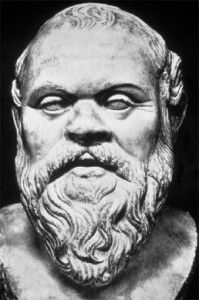An Evergreen Piece

Humble Men
Socrates was an ugly, poor man with no pretensions. In the eyes of the world, he was a misfit and fool, a constant butt of jokes around sophisticated Athens, but he didn't mind. He was very humble, thinking little of himself and caring little for his earthly affairs.
His humility was combined with intense wisdom, as evidenced by the spontaneous school of promising young men (like Plato) gathered about him to learn about the higher issues of existence. Socrates became known for his ability to stump Athens' “important” men through what became known as the “Socratic method,” which is popularly assumed to be a browbeating device of intellectuals against students. But Socrates in reality stumped them because his questions permeated the depths of important issues, depths he had plumbed in his quiet and simple life of contemplation.
This combination–intense humility and deep wisdom–is not exclusive to Socrates. It has happened many times. Most significantly, it occurred four hundred years after Socrates' execution, when Jesus Christ was born into an intensely humble life, remained a poor and humble man all His life, but possessed unparalleled wisdom. It is also a consistent feature of Christ's best followers, like St. Thomas, one of the most-learned and wise men in history, but a man who always remained humble, and St. Therese of Lisieux, a simple girl who, notwithstanding her lack of higher education, became a doctor of the Church. It is perhaps the most-stunning characteristic of St. John Vianney, the Cure d'Ars.
